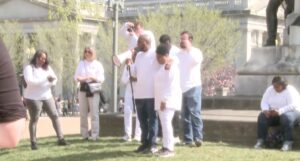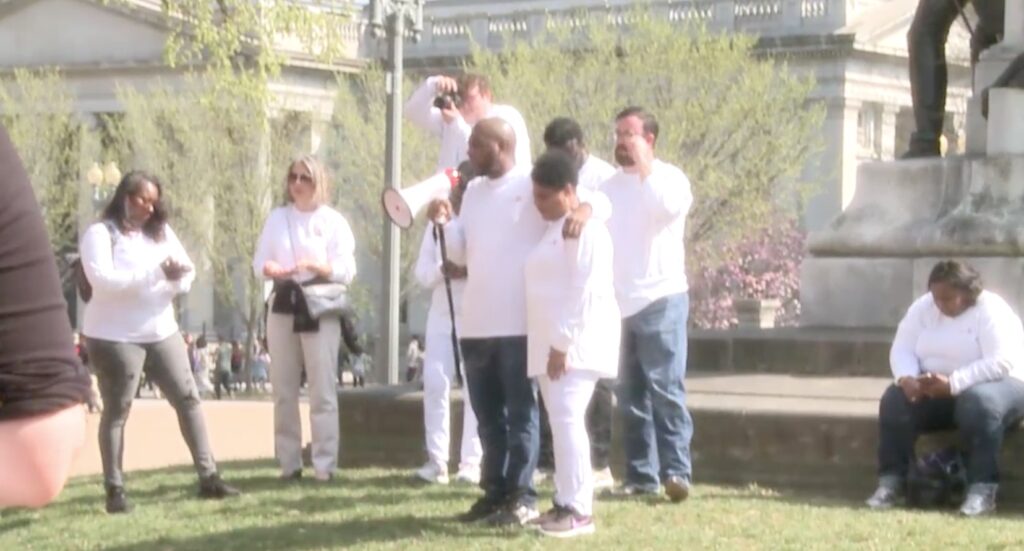By Eve Ellis | Sophomore, Duke Ellington School of the Arts, Washington, DC | Winter/Spring 2019

Prison Fellowship along with 290 partner organizations sponsored the Road to Second Chances Prayer Walk in April. The event brought attention to those who have a criminal record and want a fair shot at restarting.
The Florida Rights Restoration Coalition is one of the partner organizations that hosted the walk around the White House. Neil Volz is the political director and says returning citizens face serious challenges. “One of the things that we’ve seen is that people have a real hard time re-entering the community after they’ve gotten impacted by the criminal justice system… so everything from getting a job to finding housing to access to opportunity and higher education and loans for higher education.” He’s also a returning citizen.
According to the Bureau of Justice Statistics, each year approximately 650-thousand individuals complete prison sentences and rejoin society. President Trump for the second consecutive year proclaimed April, Second Chance Month to help decrease the numbers of people returning into the system. Trump also signed “The First Step Act into law last December. The bill aims to reform the criminal justice system, including adding more rehabilitation programs.
John Kelly first got caught up in the system when he was 12-years old and spent most of his teen years in and out of juvenile detention centers. He saw the prayer walk as an opportunity to spread awareness saying it pains him the way he’s perceived by people, who know he was formerly incarcerated. “It’s always felt like I was still a number to many people. It often feels like you’re not human and you’re an outsider. That’s probably the hardest part for me to swallow is that even people I have known has looked at me different.”
Kelly says he thinks everyone getting out of prison needs a few key things, which he found vital to his success “I had healthy relationships, a new job and a safe environment far removed from where I came from. So, I advocate those 3 things for every man and woman that comes home.”
Within three years of getting out of prison, two thirds of the more than half a million people released are rearrested. Outreach from Prison Fellowship and other groups help them stay on the right path to reduce recidivism. Those returning just want a do-over, a second chance.



